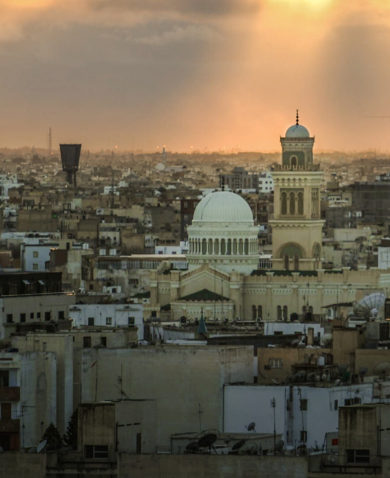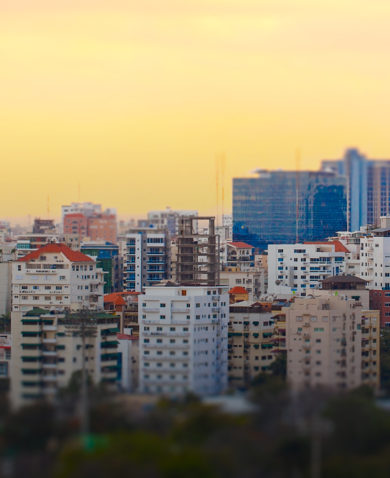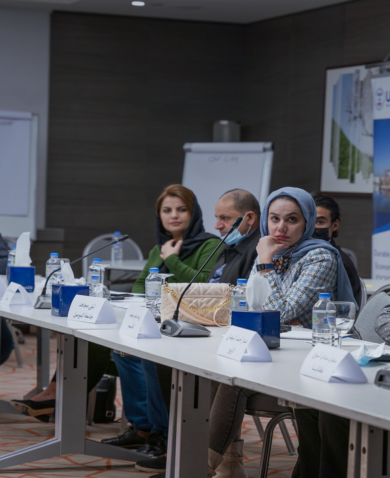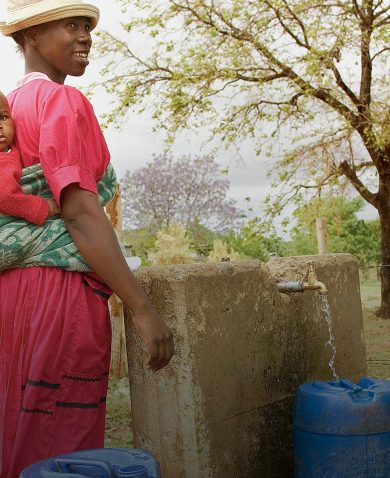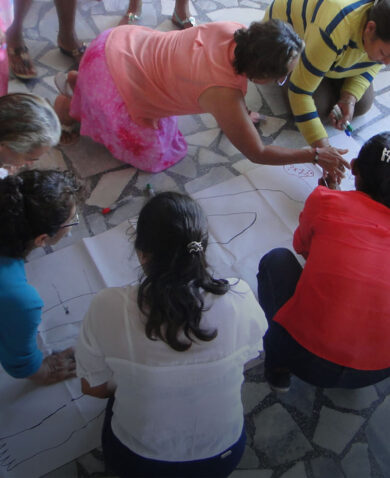
“A Job Is the First Part of the Promise”: Unpacking Youth Grievances Five Years After the Tunisian Revolution
January 26, 2016 | 4 Minute ReadMichele Piercey explains why Tunisians' post-revolution frustration goes deeper than a lack of economic opportunity and what this means for the global development community.
A little more than five years ago, Sidi Bouzid fruit vendor Mohamed Bouazizi set himself alight. When he was unable to pay a bribe to be allowed to sell fruit from a wheelbarrow, a local policewoman reportedly slapped him, spat at him, confiscated his scales, and threw his cart aside, ruining the merchandise he had purchased on credit to sell. An hour later, before dousing himself in gasoline front of the governor’s office, he cried “How do you expect me to live?” The massive, youth-led public protests sparked by his death resulted in Ben Ali’s flight from Tunisia. This marked the birth of a process that would take Tunisia down the path to democracy and a promise of full participation and greater opportunity for all of the country’s citizens, not just the elites.
Yet five years on, “How do you expect me to live?” is still a salient question for many of Tunisia’s youth, especially in the interior, which still lags well behind the coastal cities in terms of development and economic opportunities. The failure of the democratic transition to deliver much tangible improvement for Tunisians in these respects has fomented anger and worsening frustration that last week erupted again into violent protest. Though police have dispersed the protesters and the country is calm and under curfew for now, the protestors’ message is unmistakable: Tunisians, especially youth, are running out of patience while they await fulfilment of the promise of the Revolution.
Going beyond the “first part of the promise”: political, social, and economic inclusion
Tunisia offers a salutary lesson for assistance practitioners and policymakers when analyzing the root causes of instability and devising responses. It would be a mistake to assume that lack of jobs is the only, or even the principal, grievance driving the country’s destabilizing frustration. Similarly, we need to challenge the assumption that Tunisia’s woes can be solved through economic growth and job creation alone, even though jobs were the flash point in last week’s demonstrations.
In meetings with youth activists, job seekers, aspiring youth entrepreneurs, and civil society in Tunis last week, I heard the same refrain: Tunisia’s youth are excluded from political, social, and economic life by a governing elite that is preoccupied with other issues and unresponsive to young people’s priorities. This was not, as a 20-year-old from Sijoumi told me, about just getting a job (though a job, he said, is the “first part of the promise”). It is about attending to a fundamental human need for belonging, which takes a number of forms:
- Political participation. Immediately post-revolution, experienced political movers and shakers coalesced to form new political parties with low youth representation, and youth continue to report they are not heard on decisions that affect them. Political parties could address this by recruiting and developing a cadre of “tomorrow’s leaders” and grooming them to stand for election. Every ministry could formalize a consultative process with young people on key legislation and report out to the constituency on how their input was incorporated into bills.
- Transparent justice. In response to the burgeoning terrorist threat, the state has responded with increased surveillance and security measures, reviving dormant laws to enhance powers of arrest, and passing a new counterterrorism law that confers broad powers on the state that have disproportionately affected youth. Reviewing and reforming these laws would be a good start. Augmenting enforcement with prevention initiatives like youth-to-police engagement, community-building initiatives, and forming youth advisory councils on violent extremism would also help.
- Youth leadership. Age and experience is highly valued in Tunisian culture. The idea that youth must wait their turn to lead and be heard in different parts of life is implicitly communicated in Tunisian society. Young Tunisians want to hear and see more tangible examples of youth who are recognized – by everyone – as leaders.
Of course, job creation is important and can be improved
Job creation initiatives by donors and the Tunisian government do not appear to have reduced youth unemployment enough, as evidenced in the latest protests. One solution is to scale up these programs. With 60 percent of the population younger than 30 and an estimated 40 percent youth unemployment rate, Tunisia needs a significant jobs plan that is linked to a strategy of inclusive economic growth. Another step in the right direction would be to ensure job creation programs do not reinforce regional inequality and the marginalization of the interior. With a few notable exceptions, access to career-focused job initiatives is still only available to those with the means and wherewithal to prepare for and take advantage of them by graduating from high school and university. Poor neighborhoods in Tunis and marginalized governorates like Kasserine or Sidi Bouzid need better access to job creation programs.
An important question for the global development community
Continuing to exclude Tunisia’s youth from social, political, and economic life could be ruinous for the country and the region. In addition to constraining national growth by allowing so much human potential go unutilized, unmet needs legitimize the recruiting pitch of extremist groups who offer material benefit and a vital sense of community. For those of us who design or implement programs in transitional democracies, it is important to look deeper than initial, though very real, grievances about employment and ask: “What it is that constrains full, inclusive citizenship for all of a country?
When we break down unemployment protests in Tunisia, we find deeper frustration at the fact that the very people who were instrumental in Ben Ali’s fall believe they have no more of a stake in their democracy, and no more ability to influence their future, than they did before. The solution includes creating jobs to meet the first part of the promise, but it must go beyond economic opportunity to also foster a greater sense of belonging in social and political life.










